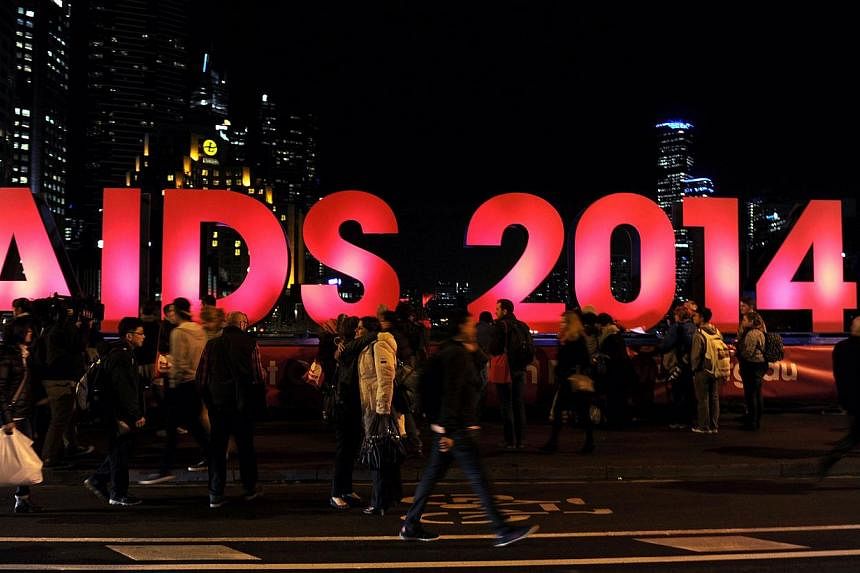MELBOURNE (AFP) - A global Aids summit was in shock on Saturday at the loss of colleagues in the Malaysia Airlines disaster over Ukraine, but delegates vowed to carry on their vital work in honour of those who died.
As many as 100 passengers on the plane were reportedly en route to the 20th International Aids Conference in Melbourne when it went down in a rebel-held part of the country on Thursday, killing all 298 on board.
The sense of loss was palpable as attendees gathered at the Melbourne Convention Centre on the eve of the high-powered meeting, the largest of its kind in the world.
"We are still in a state of shock," Nobel prize winner and International Aids Society president Francoise Barre-Sinoussi told AFP.
Among those who died was Dutchman Joep Lange, a pioneer of cheap anti-retrovirals for the poor and a prominent Aids researcher who had been involved in HIV research and treatment since 1983.
"Joep was not only a great researcher, a great champion of the fight against HIV for many years, he was also a wonderful human being," Mr Barre-Sinoussi told a cure symposium ahead of the five-day summit starting on Sunday.
"He was firmly believing that a cure for HIV was possible, as we all do, and was one of the first supporters of the idea of integrating social science with the search for a cure.
"I am convinced that he, like the other members of the HIV community that were in that plane, would have encouraged us to go on. Our presence today is certainly the best tribute we can pay."
Officials from the PharmAccess Foundation, which Dr Lange launched in 2000 to facilitate access to treatment for HIV and Aids patients across Africa, said his death was "a massive loss".
Dr Lange's "dedication to the treatment of HIV/Aids and global health in general has been groundbreaking," PharmAccess managing director Onno Schellekens said in a statement.
Flight MH17 from Amsterdam to Kuala Lumpur, which US officials believe was hit by a surface-to-air missile, was due to connect with another flight to Melbourne.
It is yet to be confirmed how many involved in the AIDS meeting were on board, but reports in Australia said there 108 medical researchers, scientists, doctors and activists.
Some 12,000 participants are due to take part in the conference, including former US president Bill Clinton, who told CNN that those who died were "martyrs".
"Thinking about those people, knocked out of the sky, it's pretty tough," he said, adding that "they were doing so much good".
"Those people are really, in a way, martyrs to the cause that we are going to Australia to talk about."
Mr Clinton is due to give an address in Melbourne on Wednesday.
UNAids executive director Michel Sidibe echoed the comments of Mr Barre-Sinoussi that the best way to honour those who died was to continue with the summit.
"We should use this moment of sadness as a moment for us to push our agenda; our agenda for saving lives of millions of people," he told reporters.
Held every two years, the International Aids Conference is a forum for campaigners to highlight developments in fighting the disease and discuss financing problems.
It is this year also expected to channel anger about laws in Africa that stigmatise homosexuality and in the former Soviet Union that punish intravenous drug users - a crackdown now extended to Russian-annexed Crimea.
Some 35 million people live with HIV, although global Aids-related deaths and new infections have fallen by more than a third in a decade, raising hopes of beating the killer disease by 2030.

